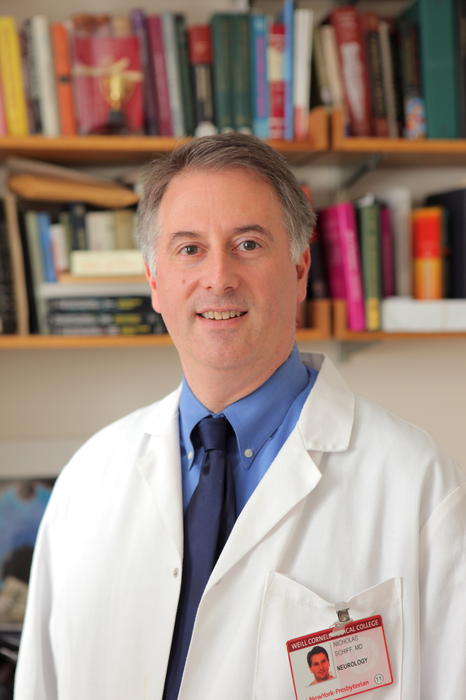Some COVID-19 patients who are on ventilators for extended periods remain in a coma for days, weeks or even longer – an unfortunate side effect of prolonged mechanical ventilation, sedation and other potential factors that have yet to be characterized. But a new research project supported by a $1.5 million grant from the James S. McDonnell Foundation (JSMF) has promising implications for the recovery of these patients.
The project is being led by Dr. Nicholas Schiff (MD ’92), the Jerold B. Katz Professor of Neurology and Neuroscience in the Feil Family Brain and Mind Institute, and co-director of the Consortium for the Advanced Study of Brain Injury (CASBI) at Weill Cornell Medicine. The project is a collaboration among investigators at Weill Cornell Medicine, Columbia University Irving Medical Center and Massachusetts General Hospital and expands upon neurological research that is already underway by the group. These three centers are part of an international consortium established in 2008 with a $10 million grant from the JSMF to study the recovery of consciousness after brain injuries.

“Dr. Schiff is an experienced leader, and he and the research team are addressing the critical needs of an emerging COVID-19 patient population suffering from dire consequences.” Dr. Susan Fitzpatrick
“This unique infrastructure positioned three U.S. medical centers hit so hard this spring by COVID-19 – Weill Cornell Medicine, Columbia and Mass General –to apply our thinking and approach to patients we were all encountering with slow recovery of consciousness following intensive-care unit treatment for COVID-19,’’ says Dr. Schiff.
Researchers currently speculate that COVID-19 patients without any identifiable structural brain lesions may be lingering in extended comas due to inadequate oxygenation during mechanical ventilation, combined with the aftereffects of prolonged anesthesia.
The James S. McDonnell Foundation supported the project for multiple reasons, says its president, Dr. Susan Fitzpatrick. “Dr. Schiff is an experienced leader, and he and the research team are addressing the critical needs of an emerging COVID-19 patient population suffering from dire consequences,” she says. “We knew that the collaborative team could be mobilized quickly, in part, because the investigators were already networked and previously supported by JSMF.”
Dr. Schiff, who is also a professor of neuroscience, of neurology and of medical ethics in medicine at Weill Cornell Medicine, says that he is enormously grateful for the gift from the JSMF – a group that has “taken the lead in supporting broad collaborative research on recovery of consciousness in humans for more than a decade.”
The hope is that the new research will bring a greater understanding of the mechanisms underlying prolonged recovery of consciousness of patients with COVID-19 – and ultimately help those with other disorders of consciousness as well, says Dr. Schiff.
